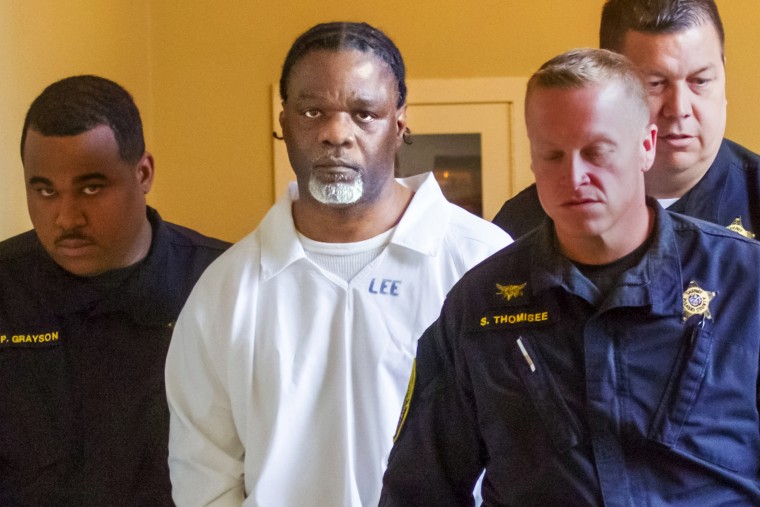Four years after Arkansas death row inmate Ledell Lee was executed, attorneys working on behalf of his family say they have uncovered new DNA profiles that belong to someone else.
The DNA was found on the handle of a bloody club that was used in the 1993 murder of Debra Reese, according to The Washington Post. The evidence belongs to an unknown man.
Lee was sentenced to death in October 1995 in Pulaski County, Arkansas, after he was convicted of murdering 26-year-old Reese. He maintained his innocence from the time of his arrest until his April 2017 execution.
His death was the state's first execution since 2005.
Attorney Nina Morrison with the Innocence Project told The Post that the newly discovered DNA results "proved to be incomplete and partial," but said it was significant and leaves the door open for more findings.
Lee's sister, Patricia Young, said in a statement to the outlet, “We are glad there is new evidence in the national DNA database and remain hopeful that there will be further information uncovered in the future."
Morrison did not immediately return a request for comment on Saturday.
Gov. Asa Hutchinson defended the execution at a press conference earlier this week.
"Whenever you make tough decisions or whenever you have to carry out the decision of a jury, you realized it's been reviewed by the Supreme Court at every level. They confirm the convictions and it's my duty to carry out the law," he said Tuesday. "The evidence that was obviously uncovered is inconclusive and the fact is that the jury found him guilty based upon the information that they had."
Attorney General Leslie Rutledge said the evidence against Lee "demonstrated beyond any shadow of a doubt that he murdered Debra Reese by beating her to death inside her home with a tire thumper."
"After 20 years, I am prayerful that Debra’s family has had closure following his lawful execution in 2017," Rutledge said in an emailed statement.
The American Civil Liberties Union and the Innocence Project, which are representing Lee's sister, filed a Freedom of Information Act lawsuit last year. The suit asked the court to order the city of Jacksonville, Arkansas, to release DNA and fingerprints from the scene that the organizations said do not match Lee's.
The ACLU and Innocence Project wanted to test the DNA and fingerprints and run them through national databases, which had not been done before.
In a January 2020 press release, the ACLU said it had found "serious flaws in the evidence used to convict" Lee and identified "DNA evidence that likely belonged to the killer."
Young said in the press release that her brother was with her on the day of the murder.
“What happened to Debra Reese is horrible, and we keep her family in our prayers. But I was with Ledell the day this murder happened, and I do not see how he could have done this," she said. "If Ledell is innocent, then the person who did this has never been caught. All we want is to finally learn the truth."
According to the Arkansas Democrat-Gazette, a neighbor testified that he saw Lee enter and leave Reese's home on the day of the murder. Another neighbor said that Lee came to his door once asking for tools.
Prosecutors suggested that was Lee's tactic in seeking out women who were home alone, the outlet reported. Authorities also said that human blood was found in Lee's sneakers.
The lawsuit, however, said that "no physical evidence directly tied" Lee to Reese's murder and the state convicted him by "vastly overstating the nature and significance" of forensic testing, some of which was found to be inconclusive.
The suit also pointed out that Lee's first trial resulted in a hung jury. He was found guilty at the second trial.
